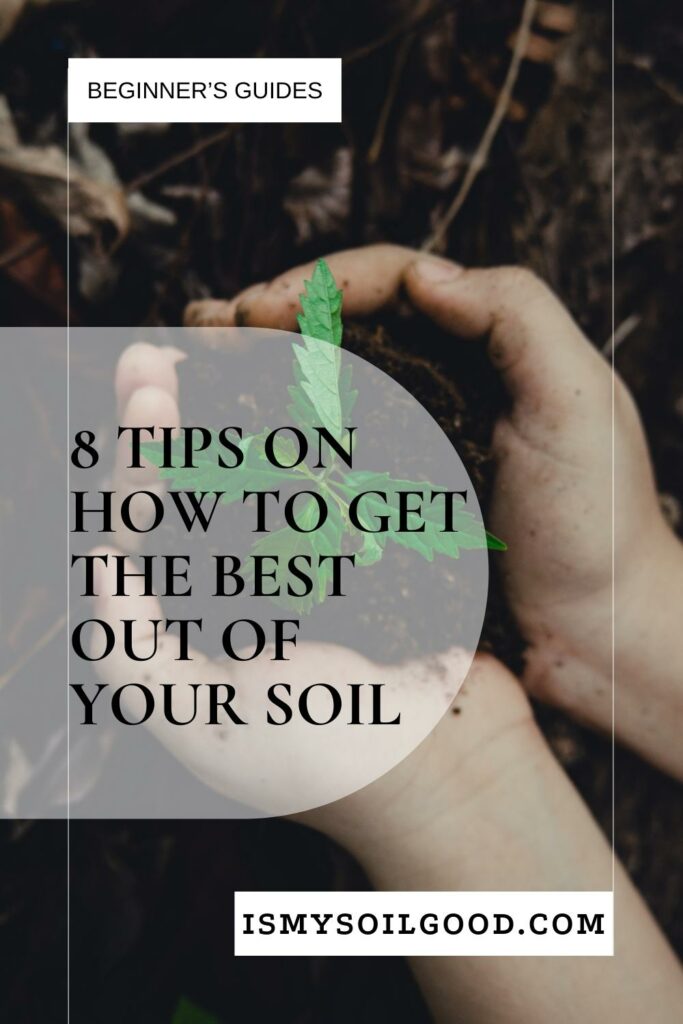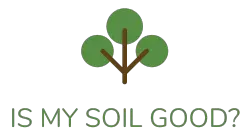We're an affiliate
We hope you love the products we recommend! Just so you know, we may collect a share of sales or other compensation from the links on this page. Thank you if you use our links, we really appreciate it!

If you’re like most people, you probably take for granted the rich, dark soil that makes it possible for us to grow plants and vegetables in our gardens.
However, with a little bit of knowledge and some simple tips, you can make sure your soil is healthy and productive! In this blog post, we will discuss how to get the best out of your soil so that you can have a beautiful garden that is teeming with life!
Table of Contents
1. Know what type of soil you have
The first step in getting the best out of your soil is to know what type of soil you have. There are three main types of soil: sand, clay, and loam. Each type of soil has its own unique properties that will affect how well your plants grow. Once you know what type of soil you have, you can take the necessary steps to amend it so that your plants can thrive.
2. Test your soil to see what kind of nutrients it contains
If you want your garden to thrive, you need to make sure that the soil is rich in nutrients. By testing your soil, you can figure out what kind of fertilizer it needs and make sure your plants are getting the sustenance they need to grow big and strong. Soil testing is easy and inexpensive, so there’s no reason not to do it!
3. Amend your soil with organic matter or fertilizer as needed
Just as you need to eat healthy foods to be physically strong, plants also need proper nutrients to grow and thrive. In order to maintain rich, fertile soil, gardeners often add organic matter or fertilizer as needed. Both of these amendments have different benefits that can help improve your soil’s health and ability to support plant growth. Let’s take a closer look at the differences between organic matter and fertilizer, and how you can use them for your garden!

Organic matter is made up of decomposed plants and animals, which means it contains important nutrients like nitrogen, phosphorus, and potassium. It also helps improve drainage and aeration in the soil, which is essential for plant growth. Fertilizer, on the other hand, is a man-made substance that contains nutrients like nitrogen, phosphorus, and potassium. It can be applied to the soil to help plants grow faster and produce more fruit or flowers.
When it comes to using organic matter or fertilizer for your garden, the best approach is to use a combination of both. By using organic matter to improve the quality of your soil and fertilizer to provide plants with the nutrients they need, you can create a healthy environment that will support plant growth. With a little effort, you can have a beautiful and bountiful garden in no time!
4. Water your plants deeply and infrequently for the best results
Some gardeners water their plants deeply and infrequently in order to promote healthy growth. This is said to be the best way to water plants, as it allows them to absorb more of the water they need. By watering less often, you are also saving yourself time and effort. Just be sure to check your plants regularly so that they don’t wilt, and water them when necessary.
Watering your plants deeply and infrequently is the best way to encourage healthy growth. By watering less often, you are allowing your plants to absorb more of the water they need. This will save you time and effort in the long run, but be sure to check on your plants regularly to make sure they don’t wilt. If they do, water them accordingly.
5. Mulch around your plants to keep the soil moist and help suppress weed growth

Mulching around plants is a great way to keep the soil moist and help suppress weed growth. There are many types of mulch to choose from, so it’s important to select the one that is best suited for your needs. Some common mulches include bark chips, straw, and peat moss.
If you’re looking for a quick and easy way to improve your garden, consider adding a layer of mulch. Mulching will not only keep the soil moist, but it will also help suppress weed growth.
6. Till or spade your garden beds regularly to keep the soil loose and aerated
Your garden’s success depends on the health of your soil. One of the best ways to maintain healthy soil is by tilling or spading it regularly. This helps to keep the soil loose and aerated and prevents compaction. By keeping your soil in good condition, you’ll be able to grow healthier plants that are better equipped to resist pests and diseases.
7. Weed your garden regularly to maintain healthy plants
Maintaining a healthy garden requires more than just occasional watering and occasional weeding. In order to keep your plants healthy and looking their best, you need to weed your garden on a regular basis. Weeds compete with plants for water, sunlight, and nutrients, so removing them is essential for the health of your garden.
Weed your garden at least once a week to ensure that your plants have the best chance of thriving. You can use a hoe or a rake to remove weeds from the soil, or you can use weed killer if they are particularly stubborn. Whatever method you choose, make sure to keep up with the weeding so that your garden remains healthy and beautiful.
8. Prune your plants as needed for optimal growth
In order for plants to grow properly, they may need to be pruned. Pruning encourages new growth and helps shape plants. It is important to understand the basics of pruning in order to avoid damaging your plants.
How To Get The Best Out of Your Soil? (Conclusion)
Soil is the foundation of our gardens, and with a few simple steps, we can make sure ours is healthy and productive. By testing our soil, adding organic matter, and using mulch, we can create an environment that allows our plants to thrive.

